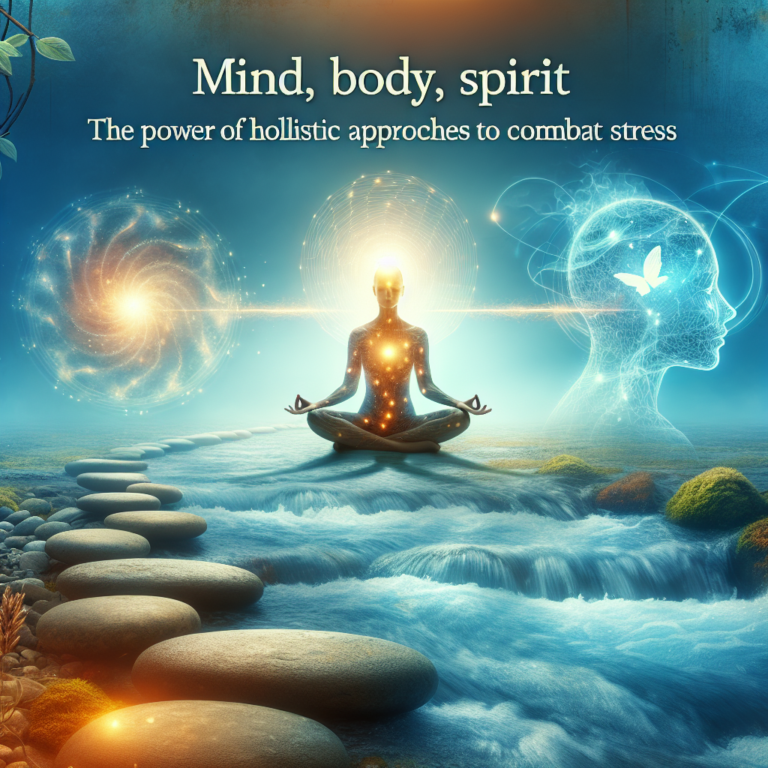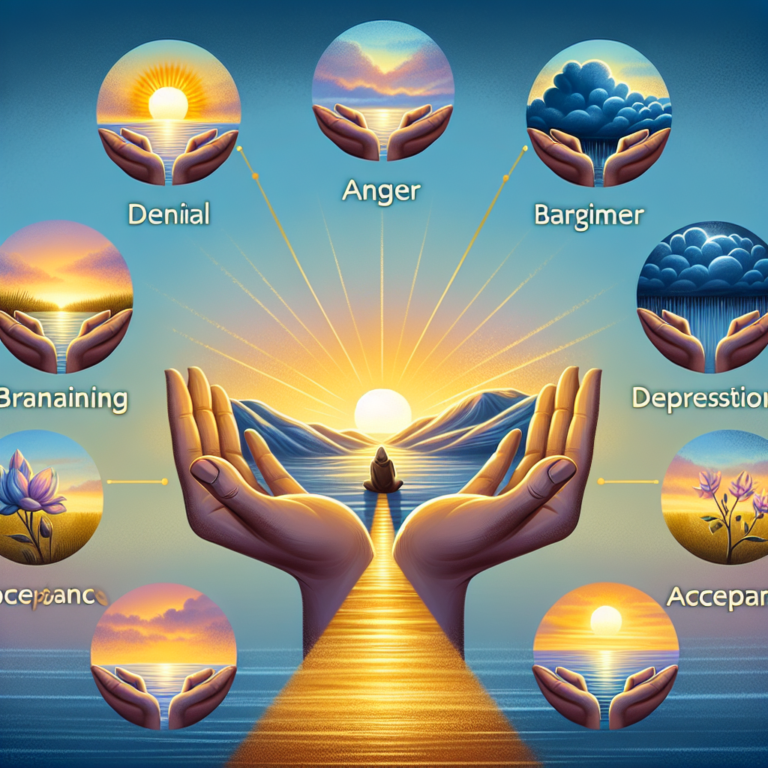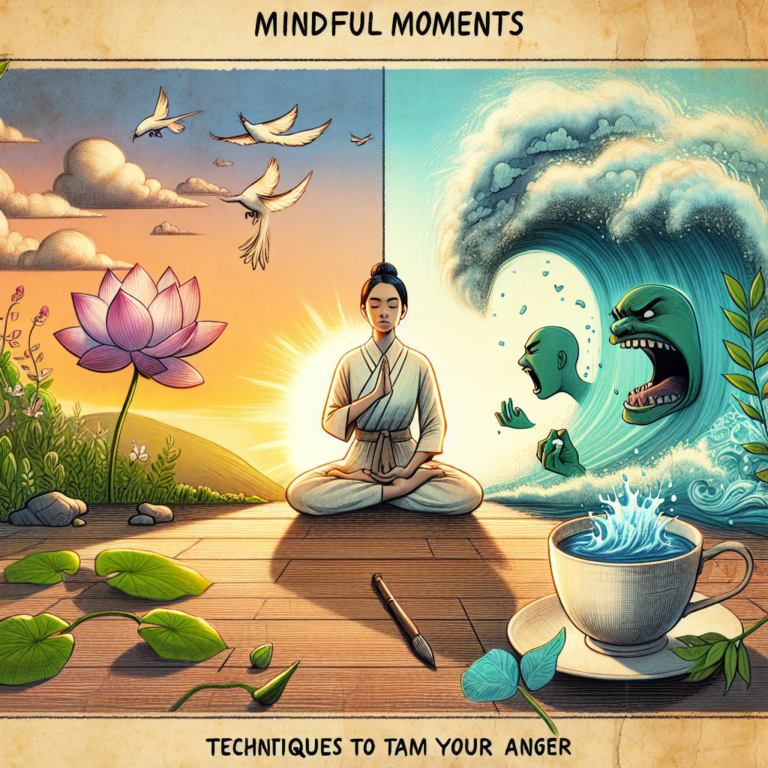
Navigate Anger with Mindfulness: Cultivating Calm in Chaos
Introduction
Anger—an emotion as ancient as humanity itself—can feel like a fierce storm, brewing in our minds, ready to unleash chaos at any moment. Policymakers, leaders, and everyday individuals often grapple with its complex nature. The warmth of this fiery emotion can sometimes fuel passion and inspire action. Yet, unchecked, it threatens to overwhelm us, leading to conflict and distress. In our fast-paced world, learning how to navigate anger with mindfulness: cultivating calm in chaos is not just beneficial; it is essential for our well-being and personal growth.
Mindfulness practices offer powerful tools to recognize, understand, and ultimately manage our anger. By embracing this approach, we can transform our responses to anger from reactive to thoughtful, enabling us to foster healthier relationships, improve our mental health, and navigate life’s inevitable challenges with grace.
In this comprehensive guide, we will delve deep into the concept of mindfulness and anger management, exploring practical strategies, real-world applications, and empowering insights. Let’s embark on this journey to cultivate calm amid chaos.
Understanding Anger and Its Triggers
The Nature of Anger
Anger is a natural, instinctual response to perceived threats or injustice. It can arise from various situations, such as stress at work, misunderstandings in relationships, or the frustrations of daily life. Understanding what triggers your anger is the first step in learning how to navigate anger with mindfulness: cultivating calm in chaos.
Table 1: Common Triggers of Anger
| Trigger | Description |
|---|---|
| Personal offenses | Actions or words that feel disrespectful or hurtful |
| Stress | Overwhelm from responsibilities or deadlines |
| Injustice | Witnessing or experiencing unfair treatment |
| Frustration | Obstacles preventing desired outcomes |
| Feeling powerless | Situations where control seems out of reach |
The Physiology of Anger
When anger arises, our bodies react. The amygdala—the brain’s alarm system—signals a fight-or-flight response. This can lead to a surge of adrenaline and physiological changes. Recognizing these bodily signals can help you intervene before your anger escalates. Mindfulness encourages you to tune in to your body, helping in your quest to navigate anger with mindfulness: cultivating calm in chaos.
The Principles of Mindfulness
What is Mindfulness?
Mindfulness is the practice of being fully present, aware of your thoughts, feelings, and surroundings without judgment. It allows individuals to observe their emotions—not just to react to them impulsively. Incorporating mindfulness into your emotional toolkit can be transformative.
Mindfulness Techniques for Anger Management
Breath Awareness: Focusing on your breath can ground you in the present moment. When you feel anger rising, take a few deep, slow breaths to calm your nervous system and clear your mind.
Body Scan Meditation: Engaging in a body scan can increase awareness of tension caused by anger. Noticing where you store anger physically can provide insight and help you release it.
Mindful Listening: When engaged in a dialogue that may provoke anger, practice mindful listening. Focus on the speaker without planning your response. This can diffuse tension and foster understanding.
- Journaling: Writing about your feelings can clarify your thoughts and emotions. When you articulate your anger on paper, you create space to examine the root causes and reflect on healthier responses.
Real-World Applications of Mindful Anger Management
Case Study 1: Workplace Conflicts
In a high-pressure corporate environment, Sarah frequently found herself in confrontations with colleagues, feeling frustrated by miscommunication and unrealistic expectations. After attending a mindfulness workshop on navigating anger with mindfulness: cultivating calm in chaos, she began implementing breath awareness and journaling into her routine. Sarah reported a significant decrease in workplace stress and found herself responding with composure instead of frustration.
Analysis: This case study illustrates how mindfulness can transform anger responses in professional settings. By investing in emotionally intelligent communication, individuals can foster a more harmonious workplace.
Case Study 2: Parenting Challenges
David, a father of two, often felt overwhelmed by his children’s behavior, leading to frequent bouts of anger. After seeking mindfulness strategies, he incorporated mindful listening during parent-child conversations. As a result, both he and his children felt more connected, reducing the frequency of conflicts.
Analysis: Parenting can be a source of immense frustration. This case reflects how mindfulness facilitates better family dynamics and opens the lines of communication, building trust and understanding.
Case Study 3: Interpersonal Relationships
Maria struggled with anger in her romantic relationship. Frequent arguments left her feeling isolated and misunderstood. After learning about mindfulness, she practiced body scan meditations to identify her feelings. By doing this, she discovered that her anger stemmed from unmet needs rather than her partner’s actions. Maria started discussing these needs calmly, which alleviated tension and improved their emotional connection.
Analysis: This case highlights the importance of self-awareness in relationships. By understanding the roots of anger, individuals can approach discussions with empathy rather than hostility.
Cultivating Calm in the Midst of Chaos
Strategies for Daily Mindfulness Practice
Establish a Routine: Create a consistent mindfulness practice—morning meditation, midday breathing exercises, or evening gratitude journaling.
Mindful Transitions: Use daily transitions (e.g., commuting or meal preparation) as opportunities for mindfulness. Focus on each task and engage fully.
- Nature Breaks: Spend time in nature. Whether a walk in the park or simply observing your surroundings, nature fosters a sense of calm and connection.
Building a Mindfulness Community
Sharing your journey with others can greatly enhance your mindfulness practice. Consider joining a community of like-minded individuals, such as local meditation groups or online forums focused on navigating anger with mindfulness: cultivating calm in chaos.
Table 2: Benefits of Practicing Mindfulness in a Group
| Benefit | Description |
|---|---|
| Accountability | Encourages regular practice through commitment |
| Shared Experiences | Learning from others’ insights and successes |
| Supportive Environment | Creating a safe space for discussion and exploration |
Overcoming Obstacles in Mindfulness Practice
Common Misconceptions
Mindfulness is Only for Stress Relief: While mindfulness is beneficial for stress reduction, it is also a powerful tool for navigating difficult emotions, including anger.
It’s Too Hard: Starting small and being patient with yourself is key; mindfulness is a skill that develops over time.
- You Must Meditate for Hours: Effective mindfulness can be practiced in short snippets throughout the day. Even five minutes can create a profound difference.
Integrating Mindfulness into Your Life
Instead of viewing mindfulness as an extra task, integrate it into your daily routine. The key is to remain intentional about making mindfulness a foundational aspect of your day.
Conclusion
Navigate anger with mindfulness: cultivating calm in chaos is not merely a catchy phrase but a call to embrace a more serene approach to our emotional lives. By practicing mindfulness, we can transform our anger into a powerful force for growth and understanding. Whether combating daily irritations or resolving deep-rooted resentments, adopting a mindful perspective allows us to respond with compassion, grace, and clarity.
The journey toward mindfulness is personal yet universal. It takes commitment, but it offers immense rewards—greater emotional resilience, enhanced relationships, and ultimately, a richer, more fulfilled life. Start small, remain curious, and empower yourself to navigate anger with mindfulness!
FAQs
1. Can mindfulness really help with anger management?
Absolutely! Mindfulness helps you recognize and process anger, allowing you to respond thoughtfully rather than react impulsively.
2. How long does it take to see results from practicing mindfulness?
Results can vary from person to person, but many individuals report feeling calmer and more centered after a few weeks of consistent practice.
3. What are some quick mindfulness techniques I can use during moments of anger?
Deep breathing, grounding exercises, and taking a short walk can all help you center yourself and calm anger in the moment.
4. Is mindfulness suitable for everyone?
While mindfulness techniques are generally beneficial, it’s essential to find methods that resonate with you. Giving it a try is the best way to discover its worth.
5. How can I encourage my family to try mindfulness?
Share your experiences and benefits, start family activities around mindfulness, or suggest simple practices they can integrate into their routines.
By implementing these strategies and embracing the principles of mindfulness, you are well-equipped to navigate anger with mindfulness: cultivating calm in chaos. The path to emotional wisdom is a rewarding journey, one step at a time.















